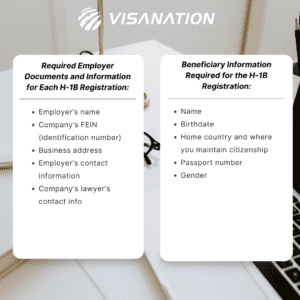How Individual Judges Can Help or Hinder Immigration Law Enforcement
Judges make two kinds of decisions in the immigration field: sweeping ones that rule if an agency action is constitutional or if an agency is misinterpreting the law, and narrower ones about the appropriate penalties in specific cases for breaking the law. We hear more about the broader type of decision than the narrower one, yet both are important.
In the last couple of weeks, four sentences (or settlements) in specific cases have come to our attention: one terrible, one so-so, and two commendable. We summarize them in turn.
Terrible. We reported two years ago on a large-scale, long-running, complex, and sophisticated scheme run by nine people designed to cause the hiring of illegal aliens in the restaurant and hotel business in Georgia and perhaps near-by states. A total of 36 charges were filed against Regal Hospitality Solutions LLC and the Florida-based Educational World as well as Sargis Makaryan and Samvel Nikoghosyan, officers of Regal, and seven others.
They were charged with taking foreign workers whose J-1 status was ending, securing B-1 tourist visas (which do not allow paid employment) for them, getting them (illegal) jobs, and applying for H-2B visas for them, while charging the aliens $650 each for filing the tourist visa applications for them. The scheme had been operating for years and caused (indirectly) the loss of jobs to citizens, and the gouging of the aliens. The government must have spent a bundle investigating the matter. (Why the State Department’s Student and Exchange Visitor Program can be used to provide hotels with cheap alien labor with the J-1 visas is a continuing good question.)
Two years have passed and we find that — with the assent of the prosecutors — the two main players have entered a plea deal by which they get probation for two years but no jail time and pay piddling $5,100 fines each. The plea deal, which is usually part of the public record, is kept a secret in the PACER files. It is document 464 in the filings; that there are more than 400 filings in the case shows both the complexity of the case and the amount of prosecutors’ time spent on it.
Some of this can be seen in a recent Law360 article.
My sense is that such a flagrant case should have involved serious jail time for the lead players, with DoJ making a big deal out of it. That did not happen.
So-So. I have mixed feelings about a settlement worked out between the Justice Department and General Motors in which GM paid $365,000 for illegally inconveniencing an unknown-sized group of green card workers.
What the car firm did, according to Law360, was: “combine[] export compliance measures with employment eligibility verification and wrongly forced newly hired green card holders to show their passports as a condition of being hired”.
This is the moral equivalent of a fledgling cashier at the grocery store asking a customer to provide both a driver’s license and a credit card when only a credit card is needed, something she should not have done, but a very minor matter. I am no big fan of GM, but in this case DoJ managed to extract $365,000 from it for, in effect, using a pencil when a pen was needed.
GM did not make money illicitly from this practice; no workers, citizen or green card, lost their jobs, and no one was cheated financially. But DoJ staff, who could have been doing something useful, like prosecuting employers of illegal aliens, were diverted to investigating this bit of piddle.
Commendable. A Cambodian couple, Leaphiny Reese and Thou Samphear, came to the U.S. on tourist visas, then separately married U.S. citizens but continued to live together. They were hauled into the immigration courts, conceded the government’s case, and then asked not to be deported.
They appealed from the Board of Immigration Appeals to the Fifth Circuit and a three-judge panel from that circuit turned it down seeing “no good purpose” to consider the case given their convictions. The paperwork at the appeals level gives us little about the facts in the case and, typically, lots on the law.
All too often in marriage fraud cases penalties are insufficient, and while deportation may be in the offing, it does not get recorded. This one is clear — marriage fraud gets you kicked out of the country, as a Law360 report indicated.
Commendable. Our final instance, handed down by a Department of Labor administrative judge and announced by the department, dealt with a swimming pool contractor in the Philadelphia area that violated multiple parts of the H-2B program and incurred three different kinds of financial penalties, all in sharp contrast to the fate of the Georgia firm mentioned earlier.
The firm, GSI Pool Finishes of Ambler, Pa., had, among other things:
- Improperly classified three workers as a yard helper, truck shop helper and warehouse helper. The employer was only permitted to employ workers as cement masons.
- Failed to include all required information on the employees’ earning statements.
- Did not provide inbound, outbound and daily subsistence to workers for their travel to and from the employer’s worksite from either the U.S. or hometowns in Mexico.
- Did not keep accurate records of employee hours worked and any monies paid to workers for travel.
- Failed to recruit U.S. workers as required, as part of supplemental recruitment in 2018.
Three American workers and 56 cement masons from Mexico are noted as having been cheated in various ways, with three different kinds of financial penalties: $266,627 in unpaid back wages to the workers, $50,470 in travel expenses, and $67,649 in civil penalties.
The only thing missing was a decision by the department to debar the contractor from the program. The current DoL debarment list does not, or perhaps not yet, list this firm.
So penalties for breaking the immigration law, made by either judges or settlements, vary all over the place; some are made by the executive branch and some by the judicial branch, but most should be stiffer.





